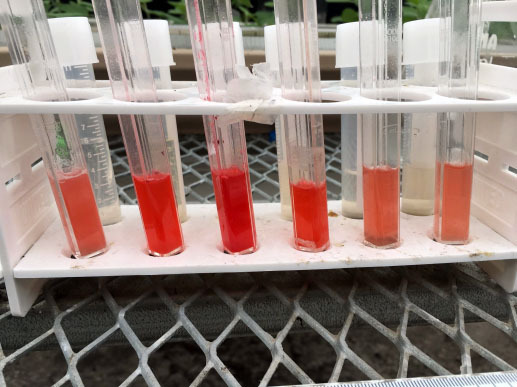Soil compaction and fertilizer run-off in soybean crop
What is the relationship between soil compaction affecting fertilizer runoff?
Supervising teacher
Megan Prendergast
Student
Ian Spence
School
Global Impact STEM Academy
Supporting files
ian-spence_-stem-fair-project-paper-2019-2020.pdf

The purpose of conducting this experiment was to learn more information about the problem of fertilizer runoff and its relation to soil compaction as well as exploring possible solutions to both of these issues. A variety of research has been done over soil compaction and its effects on not only fertilizer runoff, but root growth and other problems caused because of compaction. A difference between compaction and other problems is that it is a visible one. It is easy to see soil compaction compared to nitrate levels in the soil. Other studies have been conducted on the effects of runoff nitrates on the water system and what causes this runoff. These studies conclude that the result of this extensive runoff has nothing to do with the water itself, but the soil it runs off of. The main issue with looking at fertilizer runoff is that many factors contribute to the problem. One of the main factors is soil compaction, which was independently tested in this study. This study specifically looks at the effects of soil compaction on runoff and the amount of nitrate in the runoff. Multiple rows of soybeans were planted in a greenhouse. Of these rows, half of the rows consisted of highly compacted soil, and the other half, loosened healthy soil. No other variables were changed in this study. Soybeans were planted every 2 inches in the rows which were spaced 7.5 inches apart. A collection system made up of gutters was made to collect the runoff after the soybeans were fertilized. The collected samples were then tested for nitrate. The results of this study supported previous studies as well as the hypothesis that the levels of nitrate were higher in the runoff from the compacted soil.
